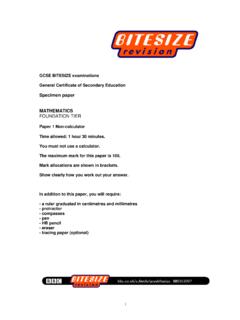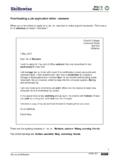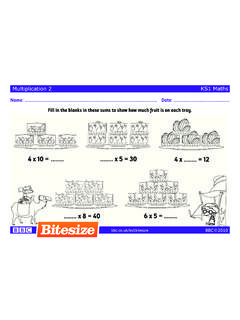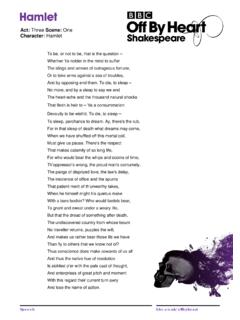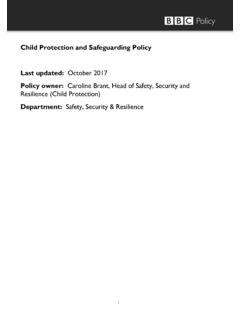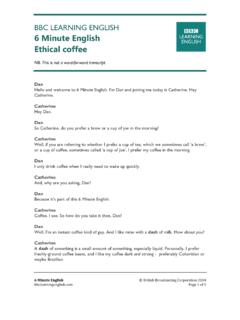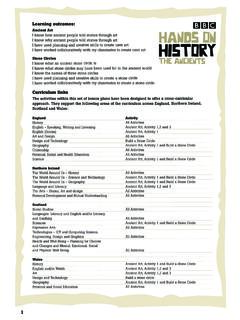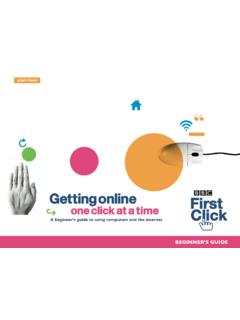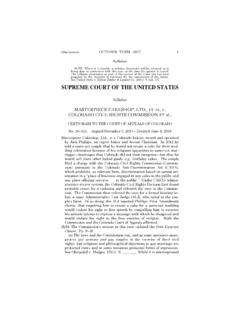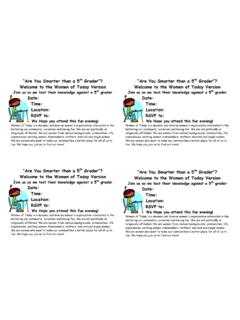Transcription of THIS TRANSCRIPT IS ISSUED ON THE …
1 2 THIS TRANSCRIPT IS ISSUED ON THE UNDERSTANDING THAT IT IS TAKEN FROM A LIVE PROGRAMME AS IT WAS BROADCAST. THE NATURE OF LIVE BROADCASTING MEANS THAT NEITHER THE BBC NOR THE PARTICIPANTS IN THE PROGRAMME CAN GUARANTEE THE ACCURACY OF THE INFORMATION HERE Mistaken Identities: Creed, Country, Color, Culture Kwame Anthony Appiah Reith Lectures 2016 Lecture 1: Creed, London SUE LAWLEY: Hello and welcome to the 2016 Reith Lectures. We begin the series at the London School of Economics and Political Science. It was founded in 1895 for the betterment of society and boasts President Kennedy and Mick Jagger among its alumni.
2 The subject of our lectures this year is Identity. What is it that makes us who we are? Our country, our colour, our religion or our culture? Is it none or is it all of these things? Tackling these questions is a philosopher who s written extensively on subjects such as ethics, honour and cosmopolitanism. He s also, by the way, written a handful of highly entertaining detective novels. His parents made headlines when they married here in 1953. Theirs was said to be the first inter-racial society wedding and an inspiration for the film Guess Who s Coming to Dinner.
3 His mother was the daughter of Sir Stafford Cripps, the post-war Chancellor of the Exchequer, and his father was an independence activist for what was then called the Gold Coast, now Ghana. His own marriage also made a small piece of social history when four years ago he married his long-term partner within days of same-sex marriage being recognised by the state of New York. 3 So - born in the UK, a childhood spent living in Ghana, back and forth to boarding school here in England, onto Cambridge, a teacher at some of the world s top universities - Yale, Cornell and Harvard and now Professor of Philosophy and Law at New York University.
4 Here, then, is a man who s successfully crossed so many different boundaries, someone qualified to opine on the nature of identity in all its forms. Ladies and gentlemen, to deliver the first of four lectures under the title of Mistaken Identities, please welcome the BBC 2016 Reith Lecturer Kwame Anthony Appiah. (AUDIENCE APPLAUSE) KWAME ANTHONY APPIAH: Thank you, thank you very much. Often over the years, London taxi drivers, wondering about the combination of my accent and my appearance, have often asked me where I was born.
5 And I ve told them: Here in London. But that wasn t what they usually wanted to know. What they meant to ask me was where my family came from originally. Some guessed from the way I look that I came from South Asia; that I was merely pretending not to understand them when they addressed me in Hindi! (laughter) Prodded further, I d have had to answer that I come from two families in two places pretty far apart. My mother grew up on the edge of the Cotswold Hills, in a tiny village on the border of Oxfordshire and Gloucestershire. When she met my father, she was working in London at an organization called Racial Unity, dedicated to promoting racial harmony throughout Britain and her empire.
6 You could say that her principles were put into practice, because my father was a law student from the Gold Coast. He was an anti-colonial activist, the President of the West African Students Union, and a representative in Britain in those days of Dr. Kwame Nkrumah, who was to lead Ghana to independence. So the other side of my family came from Ghana: more precisely from the region of Ashanti. My father s lineage, as he taught us, could be traced back to Akroma-Ampim, an eighteenth-century general whose military successes had won him a great tract of land on the edge of the Ashanti kingdom.
7 His name is one of the names my parents gave me; and my father raised us with stories of his family. There s a wrinkle here: My mother s people traced family through fathers, my father s through mothers: So I could have told those taxi drivers, 4 then, that I really had no family at all. Naturally, of course, I ve been embraced and absorbed by both. Well I begin with family stories because I want, in these lectures, to explore the ways in which stories like these shape who and what we are. Your sense of self is shaped by your family, but also by affiliations that spread out from there, like your nationality, gender, class, race, and religion .
8 Nowadays, we talk of these affiliations as matters of identity. That s historically a rather recent use of that term, though. When George Eliot writes in Middlemarch that Rosamond was almost losing the sense of her identity, it s because her sense of self has been shaken by the revelation that the man she thinks she loves is hopelessly devoted to somebody else. So identity here is utterly personal. The identities we often think of today, on the other hand, are shared, sometimes with millions or billions of others. So they re social. I m not going to try to explain why identity talk has exploded through my lifetime, though I agree that s a fascinating question.
9 Instead, I ve set myself the task in these lectures of trying to challenge some of our settled assumptions about how identity works. Each of my four lectures focuses on one species of the phenomenon: next time, in Glasgow, I ll be talking about country; after that, in Accra and in New York, I ll be taking on color and culture. But today, here in London, I m going to start with creed, because religious identities so often connect us with some of the very oldest stories that we have. When my parents got married in the 1950s, they were warned that their mixed marriage was going to be difficult.
10 And my parents agreed because, you see, my father was a Methodist and my mother an Anglican. (laughter) They made a home together in Kumasi, the Ashanti capital, for the rest of their lives, but, true enough, they were always members of different churches. One reason their marriage worked, I think, was that they were each sustained by these slightly different variants of their faith. What some counted a burden, they counted a blessing. And religion wasn t something they practiced only on Sundays: it infused their lives. In that way, it was like many other religious traditions over the millennia.


